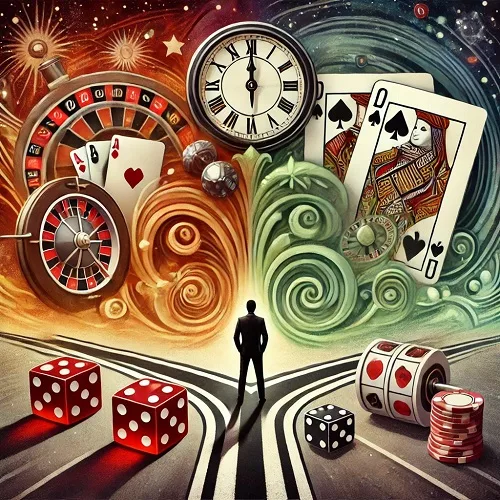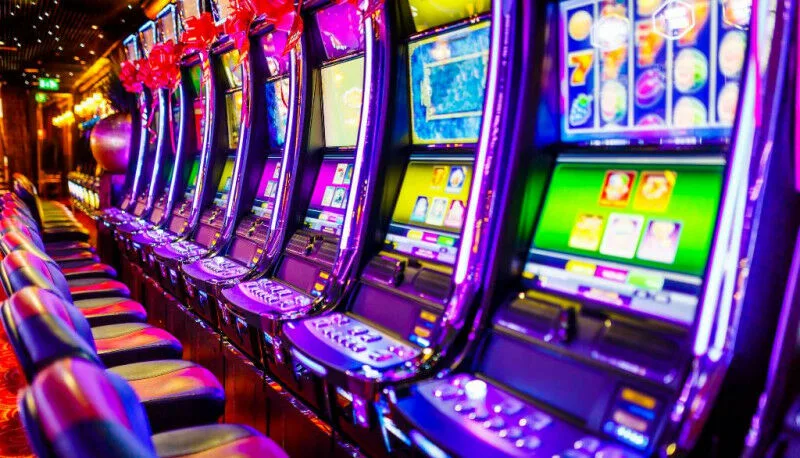
The Philosophy of Gambling: Understanding Our Desire to Gamble
Gambling, an activity as old as human civilization, has always fascinated people. Whether it’s the thrill of chance, the allure of potential riches, or simply a social pastime, gambling appeals to a deep-seated part of the human psyche. In this article, we explore the philosophical underpinnings of why we gamble, delving into the psychological, cultural, and existential dimensions that drive this timeless practice.
The Psychological Thrill of Chance
At the heart of gambling lies the appeal of uncertainty. The thrill of not knowing the outcome taps into a fundamental human love for adventure and risk. This desire for excitement can be linked to dopamine, a neurotransmitter in the brain associated with pleasure and reward. When we gamble, the anticipation of a possible win triggers a release of dopamine, providing a rush akin to the feelings experienced in other thrilling activities like sports or adventure.
Furthermore, gambling offers a temporary escape from reality. It provides an opportunity to transcend the mundane and enter a world where anything is possible, if only for a moment. This escapism can be particularly attractive in times of stress or hardship, offering a fleeting sense of control or hope in an uncertain world.
Cultural and Social Aspects of Gambling
Gambling is also deeply ingrained in many cultures around the world. From ancient rituals to modern-day casinos, the act of wagering has been a part of social gatherings and cultural traditions for centuries. In some societies, gambling is seen as a communal activity, a way to bond and celebrate together. The shared experience of taking risks and possibly winning rewards creates a unique social dynamic, reinforcing group identity and cohesion.
Moreover, cultural narratives often portray gambling as a metaphor for life’s unpredictability. The concept of fate, luck, and fortune are central themes in many stories and traditions, influencing how individuals view their actions and decisions in the context of gambling. This cultural framing can both romanticize and normalize gambling, making it a more accepted and integrated part of daily life.

The Existential Appeal: Confronting the Unknown
Beyond psychological and cultural reasons, gambling also touches on deeper existential themes. The act of gambling can be seen as a microcosm of life itself—a series of uncertain outcomes where individuals strive to make the best choices with the information and resources available to them. In this way, gambling becomes a way to confront the inherent uncertainties of existence, a practice that mirrors the unpredictability of life.
This existential aspect can provide a sense of meaning or purpose, as individuals navigate the balance between skill and chance, control and chaos. The outcomes of gambling, whether winning or losing, often lead to reflections on fate, destiny, and the nature of luck, encouraging philosophical contemplation about the forces that shape our lives.
Ultimately, the reasons people gamble are as varied and complex as the individuals themselves. While some are drawn by the thrill, others seek social connection, cultural affirmation, or existential insight. Understanding these motivations can provide a richer perspective on the nature of gambling and its enduring appeal across cultures and time.
A Timeless Human Practice
Gambling, in its many forms, offers a unique lens through which to view human nature. It reflects our desire for excitement, our cultural narratives, and our existential questions. While the risks associated with gambling are well-known, its enduring presence in human society suggests that it fulfills a deep-seated need for many individuals.
As we continue to explore the philosophy of gambling, it is important to consider not only the reasons why people are drawn to it, but also the ethical and societal implications. Responsible gambling practices and awareness of potential harms are essential in maintaining a healthy relationship with this complex activity. Ultimately, the study of gambling offers valuable insights into the human condition, revealing our desires, fears, and the ways we seek meaning in an unpredictable world.
